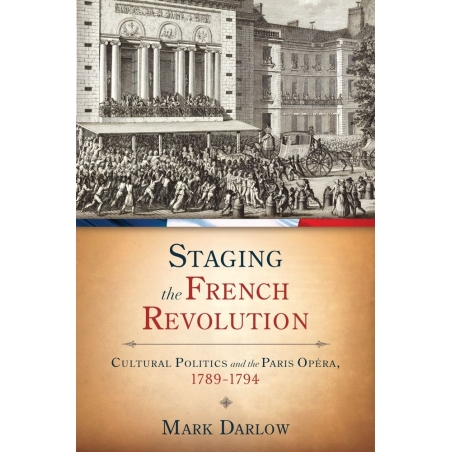In Staging the French Revolution, Mark Darlow offers an unprecedented opportunity to consider the material context of opera production, combining in-depth archival research with a study of the works themselves. He argues that a mixture of popular and State interventions created a repressive system in which cultural institutions retained agency, compelling individuals to follow and contribute to a shifting culture. Theatre thereby emerged as a locus for competing discourses on patriotism, society, the role of the arts in the Republic, and the articulation of the Revolution's relation with the 'Old Regime', and is thus an essential key to the understanding of public opinion and publicity at this crucial historical moment.
CONTENTS
CONTENTS
Acknowledgements
Sigla and Abbreviations
Note on Abbreviations
Chapter 1: The outlook in 1789
Chapter 2: From crown to town: Governance of the Opera, March 1789 - April 1790
Chapter 3: Control by the Municipality: April 1790-April 1792
Chapter 4: The Opera during the Terror
Chapter 5: Finances and repertory
Chapter 6 : Tragedy and serious works
Chapter 7: Comic and mixed works
Chapter 8: Republican repertory (1792-1794)
Notes
Bibliography
Index
| Series | The New Cultural History of Music |
|---|


